Miranda Devine: Local doctor may have breakthrough coronavirus cure
Local doctor Thomas Borody has found what may be a cheap and easy treatment for COVID-19 patients - but because the drugs are readily available, big pharma has no interest in what he has to say, writes Miranda Devine.
Opinion
Don't miss out on the headlines from Opinion. Followed categories will be added to My News.
- Political-medical elites ignoring potential COVID drug
- Safe Schools by any other name is just as rancid
Imagine if a renowned Australian gastroenterologist invented an effective, cheap, readily available treatment for COVID-19 and his own country ignored him.
That’s what has happened to Professor Thomas Borody, who is famous for inventing a cure for the bacterial infection which causes peptic ulcers, saving millions of lives around the world.
This time Dr Borody, of Sydney’s Centre for Digestive Diseases, has found a promising treatment for COVID-19 using Ivermectin, a drug that has been used safely to treat parasitic infections for half a century. He combines it in a “triple therapy” with zinc and the antibiotic Doxycycline to attack the virus from multiple angles.
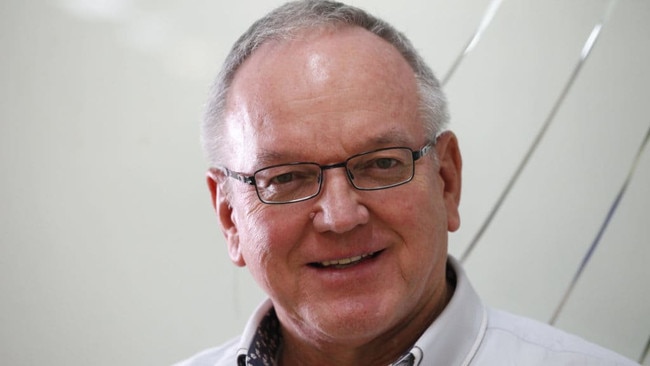
MORE MIRANDA DEVINE
Why can’t Hidin’ Biden debate Trump?
Nothing was ever enough for ungrateful Meghan
How the UN has hijacked Angry Birds and invaded the classroom
Clinical trials on his Ivermectin triple therapy are underway in 32 countries and are about to start in California. Dr Borody says the trick is “treating patients very early”, within seven days of onset, before the virus spreads through their organs and makes them sick.
Already results using the drug off-label have been promising.
In Bangladesh, 400 patients with mild to moderate symptoms were treated and 98 per cent cleared the virus within four to 14 days.
In the Dominican Republic, in 1300 patients the average duration of infection fell from 21 days to 10 days.
Mortality in already sick patients at Broward County Medical Centre in Florida dropped by 48 per cent. The results have been so remarkable that the government of the most populous Indian state, Uttar Pradesh, last week approved the use of Ivermectin for COVID-19 patients and also as a prophylactic for health workers.
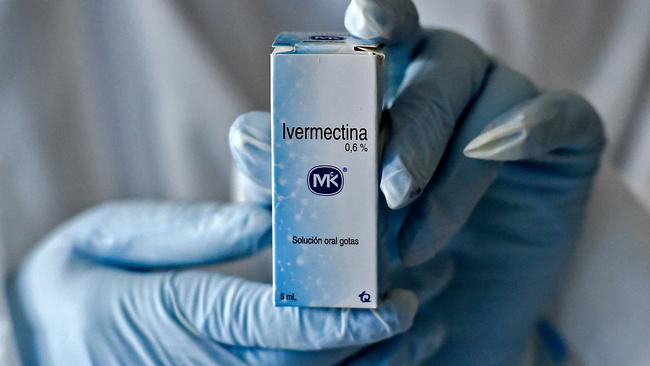
Dr Borody calls Ivermectin a “wonder drug”. But ever since he received the positive preliminary results of the overseas trials, he has been banging his head against a brick wall trying to get someone in Australia to take notice.
He has sent letters to the Morrison government and the Victorian government, urging them at least to make Ivermectin available to high-risk patients and as a preventive dose for frontline workers. “I wrote to the federal and state governments,” he said on the weekend.
“I wasn’t even responded to … It got to a certain level of the fortress, but I don’t think it got to the decision- makers. You can see how frustrating it is, whereas a big state of India says let’s use it. If nothing else, make it available in aged care homes immediately. Our elderly are at the highest risk and this is a very safe option, especially when we have nothing else except ventilators.”

He points out Ivermectin is on the on the World Health Organisation’s list of essential medicines, and has been safely used since 1975 to treat parasitic infections such as river blindness and head lice.
In fact, US President Donald Trump uses Ivermectin in cream form to treat the skin condition rosacea, according to his White House health records.
Dr Borody says he may absorb enough through his skin to protect him, despite people around him at the White House becoming ill.
But despite the drug’s proven safety record and promising results on COVID-19, “the government in Australia — and the US — does not have a curative plan”. It’s all about lockdowns and vaccines.
And because no “no large company is pushing it,” says Borody, the government won’t listen.
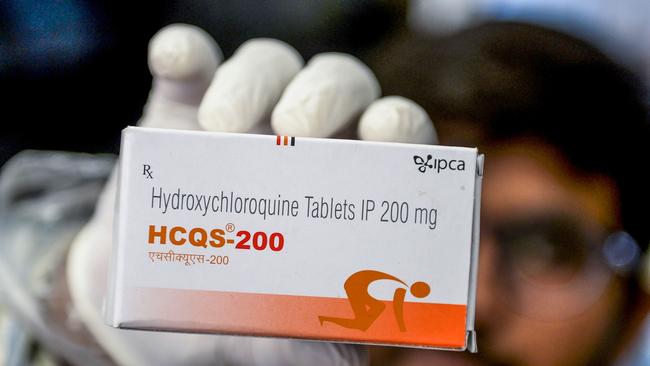
“Not only is it too good to be true, it’s cheap” he says. An Ivermectin tablet can cost as little as $2.
“This isn’t going to make money for anyone. It just needs a doctor to write a script,” he said.
And therein lies the problem. The pharmaceutical industry doesn’t like cheap off-patent drugs such as Ivermectin because they don’t reap huge profits in the way that new drugs and vaccines do.
The demonisation of the malaria drug hydroxychloroquine is a case in point.
After President Donald Trump described it as a promising treatment, “maybe a game-changer” for COVID-19 at a March 19 press conference at the White House, the media derided him as a quack and discredited the drug.
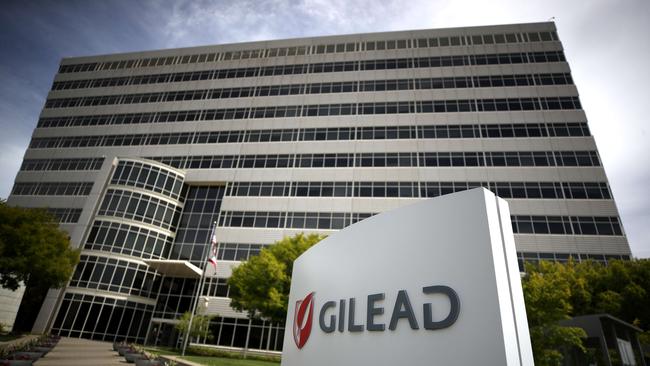
The negative publicity played into the hands of Big Pharma, who stand to make tens of billions from vaccines and new drugs. Hydroxychloroquine’s main competitor is the new antiviral Remdesivir, developed by pharmaceutical giant Gilead Sciences, which charges $US3120 per treatment.
Trump also praised Remdesivir at that press conference. Yet all the attacks afterwards were against hydroxychloroquine, while Remdesevir got a free pass. And, of course, the drug companies had the financial incentive to discredit hydroxychloroquine and the lobbyists to advance their interests.
Dr James Todaro, one of a group of rebel physicians calling themselves America’s Frontline Doctors, points out that Gilead’s stock plummeted after Trump’s press conference, wiping $21 billion off its market cap. The share price only recovered six weeks later after a promising clinical trial.
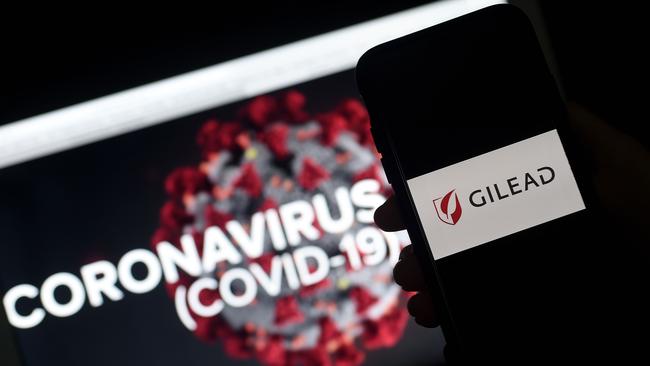
The jury is still out on hydroxychloroquine. But the campaign against it has been ferocious. Doctors can’t get results of studies published, and social media censors mention of the drug. A flawed study on a small sample of very sick US Veterans Affairs patients received enormous publicity before it was debunked. Positive studies were buried.
Two prestigious medical journals, The Lancet and the New England Journal of Medicine, had to retract a paper which used bogus data supplied by a shadowy company to discredit the drug.
The damage was done. Clinical trials stopped. WHO temporarily withdrew support for the drug.
In New York, hydroxychloroquine is banned for COVID use.
In Switzerland, where it was banned from May 27 until June 11, Politico reports this week that daily COVID fatalities jumped markedly during that period.

Whether or not it turns out to be effective against COVID-19, no drug has been more unjustly maligned.
Dr Borody is anxious that Ivermectin doesn’t meet the same fate.
Without any institutional backing, he has joined forces with California researcher Dr Sabine Hazan, founder of Ventura Clinical Trials, to fund trials themselves, at around $3500 per patient.
Dr Hazan said on Sunday that she is “hopeful this is going to be a gamechanger for COVID-19”. But she is at pains to point out there is no “one pill solution” for everyone.
If the trials go well, with expedited FDA approval, the Ivermectin triple therapy could be on the market in blister packs before Christmas. That’s for patients in America. Australia will have to wait.
Miranda Devine is in New York for 18 months to cover current affairs for The Daily Telegraph
